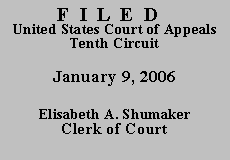

| JASON HUGHES, |
|
| v. | |
| STEVEN BECK, Warden, |
Failing to file a direct appeal, Hughes filed for state post-conviction relief. The Oklahoma district court denied relief. This denial was subsequently affirmed by the Oklahoma Court of Criminal Appeals. Both Oklahoma courts deemed Hughes's claims waived, finding that all of his claims should have been brought on direct appeal.
Hughes then sought a writ of habeas corpus in federal court pursuant to 28 U.S.C. § 2254, asserting eight grounds for relief, including the following:
(1) Oklahoma state post-conviction procedures are inadequate and ineffective to protect Hughes's federal constitutional rights; (2) ineffective assistance of trial counsel; (3) lack of jurisdiction by the state trial court based on Hughes's unlawful transfer between counties without a court order; (4) trial error in accepting Hughes's guilty pleas without informing Hughes that he would be sentenced in excess of the minimum; (5) denial of due process; (6) Oklahoma statutory language excludes Hughes's crimes from punishment by incarceration; (7) statutory language requiring parole consideration to be included in Hughes's sentence and failure by the state parole board to comply with this legislative mandate; and (8) trial error in separating one continuous act into different counts for purposes of sentencing.
The federal district court denied the writ, finding that claim one and claims three through eight were procedurally barred. With regards to the second claim, ineffective assistance of counsel, the district court reached the merits and determined that because Hughes rendered his plea voluntarily, his claim failed.
1.
In December 2005, this court construed Hughes's pro se pleadings, in particular his ineffective assistance of counsel claim, possibly to include an allegation of conflict of interest. This court granted a certificate of appealability ("COA") with respect to the conflict of interest claim, directing the government to file a response. See 28 U.S.C. § 2253(c)(1).
Since the grant of COA, this court has determined that Hughes failed to properly raise the conflict of interest claim in the district court. Although we must liberally construe a petitioner's pro se pleadings, we "may not rewrite a petition to include claims that were never presented." Barnett v. Hargett, 174 F.3d 1128, 1133 (10th Cir. 1999). Specifically, Hughes's ineffective assistance of counsel argument before the district court plainly does not include a claim that his counsel had a conflict of interest. Accordingly, that claim has been waived and COA should not have been granted.
2.
We have also carefully reviewed the record with regard to claim one and claims three through eight and agree with the reasoning set forth by the magistrate judge precluding such claims as procedurally barred by Oklahoma state law. See Okla. Stat. tit. 22, § 1086 ("All grounds for relief available to an applicant under this act must be raised in his original, supplemental or amended application. Any ground . . . not so raised . . . may not be the basis for a subsequent application, unless the court finds a ground for relief asserted which for sufficient reason was not asserted or was inadequately raised in the prior application."). According to the district court, Oklahoma's procedural bar rule is both adequate and independent such that it precludes Hughes's claims. The district court further reasoned that Hughes could not overcome the procedural bar both because he failed to demonstrate that any ineffectiveness on the part of his counsel constituted cause for the default and he failed to show any fundamental miscarriage of justice. We therefore conclude that Hughes has not made "a substantial showing of the denial of a constitutional right." 28 U.S.C.
§ 2253(c)(2); accord Slack v. McDaniel, 529 U.S. 473, 484 (2000) .
3.
Finally, the district court, in granting Hughes permission to proceed in forma pauperis ("ifp"), required Hughes to pay the filing fee in accordance with 28 U.S.C. § 1915(b)(1). However, this court has previously concluded that the Prison Litigation Reform Act, which amended 28 U.S.C. § 1915(b)(1) to impose filing fee obligations on a "prisoner" who "brings a civil action or files an appeal in forma pauperis," is inapplicable to 28 U.S.C. § 2254 habeas corpus proceedings. McIntosh v. United States Parole Comm'n, 115 F.3d 809, 811 (10th Cir. 1997); United States v. Simmonds, 111 F.3d 737, 744 (10th Cir. 1997), overruled on other grounds by United States v. Hurst, 322 F.3d 1256 (10th Cir. 2003). Therefore, the district court should not have ordered Hughes to pay the filing fee.
Finding that Hughes is not entitled to habeas relief under § 2254, we withdraw the prior grant of COA as improvidently granted. Accordingly, we VACATE this court's grant of COA and DISMISS the appeal as to all claims raised by Hughes. We sua sponte VACATE the district court's order granting ifp to the extent that it required Hughes to pay the filing fee.
Entered for the Court
Per curiam
*. This order is not binding precedent, except under the doctrines of law of the case, res judicata, and collateral estoppel. The court generally disfavors the citation of orders; nevertheless, an order may be cited under the terms and conditions of 10th Cir. R. 36.3.
2. After examining the briefs and the appellate record, this three-judge panel has determined unanimously that oral argument would not be of material assistance in the determination of this appeal. See Fed. R. App. P. 34(a); 10th Cir. R. 34.1(G). The cause is therefore ordered submitted without oral argument.